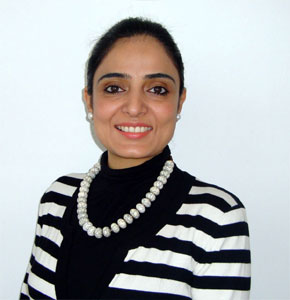
Pancreatic Cancer
by Dr. Kanchan Kaur (Associate Director, Medanta - The Medicity)
According to data from the World Health Organization (GLOBOCAN
database), pancreatic cancer is the eighth leading cause of
cancer deaths in both men and women worldwide.
Indians have a lower reported incidence of pancreatic cancer
than people in western and industrialised nation.
The disease is rare before the age of 45, but the incidence
rises after that .
The major risk factors for pancreatic cancer are:
- Cigarette smoking
- Obesity and lack of physical activity
- Chronic infection of the pancreas (pancreatitis, hepatitis B and C)
- Hereditary risk factors
- Pancreatic cysts
As the pancreas is deep inside the body, early tumours can’t be
seen or felt by during routine physical exams. People usually
have no symptoms until the cancer has become very large or has
already spread to other organs.
Pancreatic cancer is a “silent” disease because the symptoms are
often vague and can be easy to ignore. The symptoms are:
- Abdominal pain or pain in mid back
- Loss of appetite
- Weight loss which is unexplained
- Digestion issues like such as feeling full quickly when eating, bloating, burping or lots of wind
- Change in bowel habits
- Jaundice ( yellow eyes and skin)
Tests for Detecting Pancreatic Cancer
Screening tests help to identify cancers before they produce
symptoms . Screening tests for pancreatic cancer are reserved
for those who have a strong family history of pancreatic cancer
or with a known genetic syndrome that increases their risk
The two most common tests used are an endoscopic ultrasound or
MRI. These tests are not used to screen the general public.
For patients who present with symptoms, the following tests are
used to confirm diagnosis:
1. Imaging : USG abdomen, endoscopic USG , MRI, PET CT scan etc
2. Blood tests
3. Biopsy
Treatment
Treatment is based on the stage and nature of disease.
The best option might include a combination of more than one
type of treatment which include surgery, chemotherapy,
radiotherapy, immunotherapy.
Surgery : Surgery for pancreatic cancer may be used to
either offer potential cure or to relieve symptoms. When the
patient has been detected very early, it’s possible to remove
all the cancer with a goal of potential cure.
If tests show that the cancer is too widespread to be removed
completely, surgery is done to relieve symptoms or to prevent
certain complications like a blocked bile duct or intestine, but
the goal is not to cure the cancer.
Chemotherapy : Administration of medicines to shrink and
control growth of tumour is called chemotherapy. This can be
done before or after surgery depending on stage and extent of
the tumour.
Radiotherapy: Radiation therapy uses high-energy x-rays (or
particles) to kill cancer cells. For pancreatic cancer, it may
be given after surgery to try to lower the chance of the cancer
coming back.
This is generally given along with chemotherapy, which is
together known as chemoradiation or chemoradiotherapy.
For larger tumours, where surgery might be possible , radiation
given along with chemotherapy before surgery can shrink the
tumour to allow complete removal Radiation is sometimes used to
help relieve symptoms (such as pain) in people with advanced
cancers or in people who aren’t healthy enough for other
treatments like surgery.
Immunotherapy : The use of medicines to stimulate a
person’s own immune system to recognize and destroy cancer cells
more effectively is called immunotherapy.
Despite all treatments, cure rates of this type of cancer are
very low. Adopting a healthy lifestyle helps to reduce the
risk. One should be alert for any new symptoms and report them
at the earliest to your doctor. (Dr. Kanchan Kaur is an
Associate Director & Senior Consultant, Breast and Oncoplastic
Surgeon at Medanta – The Medicity in Gurgaon, India.
She did her undergraduate training from GMC Jammu and went on
to do her masters of surgery from the same college. She then
went to the UK to train as a breast specialist. She returned
to India in 2010 and has helped set up the breast service at
Medanta She is part of a team which is involved in introducing
in India, a new concept from Germany of training blind girls
to perform breast examinations. These girls undergo internship
under her. Dr. Kanchan is very passionate about her work and
wants Indian women to be aware about the risks that breast
cancer poses. She is actively involved in public awareness
programmes in Delhi and it’s neighbouring towns. Early
detection of breast cancer and counselling and emotional
support for patients and their carers is of special interest
to her.)

